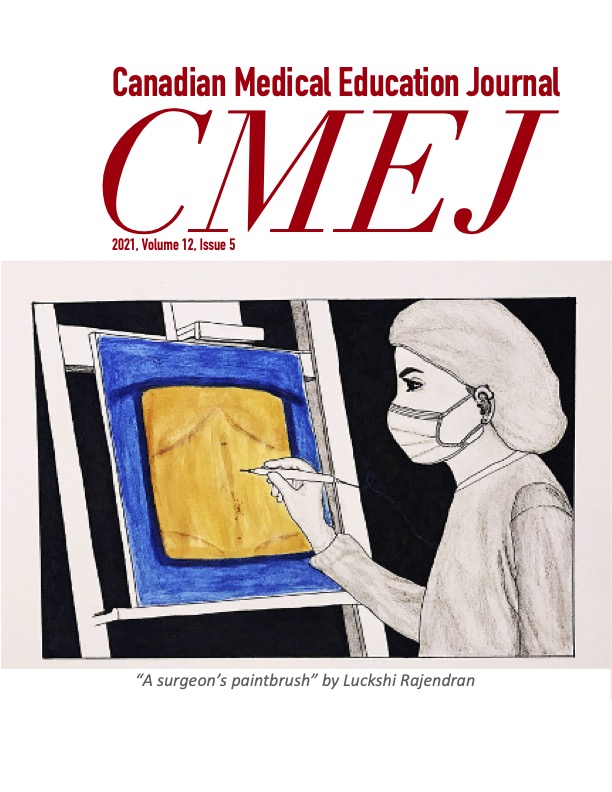The impact of urban-based family medicine postgraduate rotations on rural preceptors/teachers
DOI:
https://doi.org/10.36834/cmej.71304Abstract
Background: The use of rural rotations within urban-based postgraduate programs is the predominant response of medical education to the health needs of underserved rural populations. The broader impact on rural physicians who teach has not been reported.
Methods: This study examined the personal, professional, and financial impact of a rural rotations for urban-based family medicine (UBFM) residents on Canadian rural teaching physicians. A survey was created and reviewed by community and academic rural physicians and a cohort of Canadian rural family physicians teaching UBFM residents was sampled. Survey data and free-text responses were assessed using quantitative and qualitative analyses.
Results: Participants with rural residency backgrounds perceived a negative impact of teaching UBFM (p = 0.02 personal and professional) and those in a primary rural environment (as defined below) perceived impact as positive (p < 0.001). Rural preceptors often held contrasting attitudes towards learners with negative judgements counter-balanced by positive thoughts. Duration in practice and of teaching experience did not have a significant impact on ratings.
Conclusion: Being a rural preceptor of UBFM residents is rewarding but also stressful. The preceptor location of training and scope of practice appears to influence the impact of UBFM residents.
Downloads
Published
Versions
- 2021-11-02 (2)
- 2021-11-02 (1)
Issue
Section
License
Copyright (c) 2021 Douglas Myhre, Jodie Ornstein, Molly Whalen-Browne, Rebecca Malhi

This work is licensed under a Creative Commons Attribution-NonCommercial-NoDerivatives 4.0 International License.
Submission of an original manuscript to the Canadian Medical Education Journal will be taken to mean that it represents original work not previously published, that it is not being considered elsewhere for publication. If accepted for publication, it will be published online and it will not be published elsewhere in the same form, for commercial purposes, in any language, without the consent of the publisher.
Authors who publish in the Canadian Medical Education Journal agree to release their articles under the Creative Commons Attribution-Noncommercial-No Derivative Works 4.0 Canada Licence. This licence allows anyone to copy and distribute the article for non-commercial purposes provided that appropriate attribution is given. For details of the rights an author grants users of their work, please see the licence summary and the full licence.











